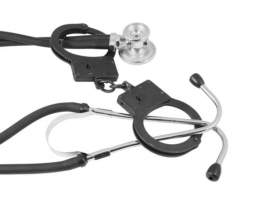
Importance of Probable Cause

Popular In Malpractice
Malpractice Attorney Contributory Negligence Malpractice Law Overview Statute Of Limitations Standard Of Care Medical Malpractice Defense Fraudulent Concealment Of Evidence Good Samaritan Acts Punitive Damages Proving Negligence Medical Malpractice Overview Express Implied Contracts From A Physician
In order for a law enforcement officer to arrest an individual, the officer must have probable cause that the individual committed a criminal offense. Probable cause is also essential for law enforcement agents to acquire search warrants. Under the United States Constitution, an individual cannot be subjected to unreasonable searches, and neither can his/her property.
Therefore, all person or property searches conducted by law enforcement officials must be reasonable. To ensure that these procedures are reasonable, law enforcement officers must have and identify probable cause. Probable cause is considered to be one standard higher than reasonable suspicion. If an officer has reasonable suspicion, he/she can detain an individual for a short period of time. Probable cause allows for extended detainment.
The term probable cause is generally used to describe a high probability that an individual committed the offense in question. The circumstances surrounding the suspected individual and the case must strongly suggest that he/she has committed a criminal offense. Often, fundamental evidence will be required to hold an individual for an extended period of time.
There must be evidence that effectively links the suspected individual to the crime in question. If there is no evidence available, then officers will likely be required to release the individual, as they do not have probable cause to hold him/her. Probable cause is not grounds for a criminal conviction. Though probable cause can warrant an arrest, concrete evidence must prove an individual's guilt, in order for him/her to be convicted of a crime.
NEXT: What is Reasonable Suspicion?





















